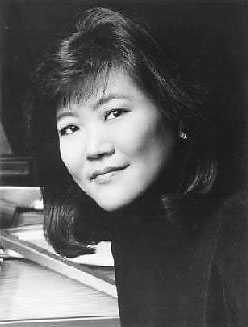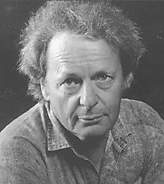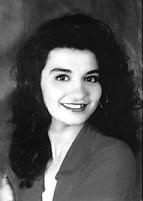|
Competitions
by Philip Anson &
Wah Keung
Chan
Summer is a
busy time for music competitions, and Montreal is host to several
important events. La Scena Musicale asked several former
competition winners about the pros and cons of the competition
experience:
Pianist Angela Cheng, first prize for piano in the
1988 Montreal International Music Competition in Piano,
recalls:
 "I was
very young when I entered my first competitions, like the Kiwanis
and the Canadian Music Competition. Competitions taught me how to
prepare and pace myself because I was a bit lazy as a kid.
Competitions were good goals for me to work towards: I knew I had to
practice harder when something was coming up. "I was
very young when I entered my first competitions, like the Kiwanis
and the Canadian Music Competition. Competitions taught me how to
prepare and pace myself because I was a bit lazy as a kid.
Competitions were good goals for me to work towards: I knew I had to
practice harder when something was coming up.
"If you do well, it makes
you more confident. You build up experience for the future. Every
competition is different. The Montreal International Competition was
challenging because it required a lot of repertoire. Competitions
are not equally useful for everyone, but it was the only way for me
to start my career.
"Any performance, in
competition or in concert, is stressful. You just want to play the
music the best you can. I felt about the same amount of stress
performing in a competition before one person as I did in a concert
in front of a thousand people. The only difference may be how you
project in a larger room versus a smaller room.
"Competitions are just a way
to differentiate yourself from others. Unlike a math test, itís not
the absolute truth. If you win, it doesnít mean you are the best of
the group. It just means that these judges preferred you over the
others. Itís subjective. You must still communicate why the music is
important to you, why you are doing it, why you want to share it.
"Iíve been lucky to have
been in the right place at the right time. The Montreal victory
opened a lot of doors in Canada. The really important thing is being
re-engaged: thatís the sign of success.
Canadian soprano Karina Gauvin has carried off prizes from
many competitions including first in the 1995 CBC Radio National
Competition for Young Performers, the Lieder Prize and Publicís
Prize at the 1994 SíHertogenbosh International Vocal Competition,
first prize in the 1994 Womenís Musical Club of Toronto and the 1992
Guelph National Vocal Competition:
"The Canadian Music
Competition was my first. At the beginning of a career, it is
important to get up on stage and perform. Competitions can be
incredibly scary, even worse than a concert. Sometimes I am so
afraid I ask myself why I am there. It certainly helps to have an
audience between you and the judges. The SíHertogenbosh competition
was well-attended from the first round and the audience was really
warm. So I felt I was singing to the public, not to an empty hall.
"On the bright side,
competitions have taught me to handle stage fright. Now when I am
worried about a concert, I just remember a really tough competition,
and I know that Iíve survived worse. Still, itís rough at first to
think that you canít please everybody. Sometimes the decisions donít
make much sense. For instance, the year I won second prize at the
Montreal Symphony Orchestra competition, they told me I was too
young to be given first prize.
"Competitions have helped me
learn repertoire quickly, especially contemporary pieces. They also
help you be objective, to know whether you are doing well and
whether people are enjoying it. You never know if people are going
to like you. Itís important to be yourself. I never go into
competition thinking Iím sure to win. That would be silly. I just
want to project music, to project my idea. Our artistic goal is to
touch somebody with the music by conveying the composerís wishes,
and hopefully thatís also what the judges want. You may not win, but
that doesnít mean you are no good. And if you are prepared for the
worst, winning comes as a nice surprise.
Tenor Jianyi Zhang was a third year student at the
Shanghai Conservatory when he took first prize at the prestigious
1984 Belvedere Vocal Competition:
"There were a lot of people
who felt the pressure to win. I was just one among many students
from the Shanghai Conservatory sent by the Chinese government. At
the time I didnít know it was a big competition, so I just sang the
eight arias in my repertoire and they gave me the first prize. That
was a turning point for me because after that I got several offers
to sing in opera. Though I had no experience in staged opera, I
really wanted to learn."
Canadian baritone Desmond Byrneís career was launched by
victories in three international competitions during a twelve month
period: third prize (and the prestigious Mozart Prize) at the 1990
Belvedere International Vocal Competition, fourth prize in the 1991
Glory of Mozart Competition and fifth prize in the 1990 Rosa
Ponselle Competition:
"Competitions are useful to
see how you react to pressure, how you cope. Itís a great place to
learn but itís not like a real performance. In a show, the stress is
spread out. After the Belvedere, the Glory of Mozart and the
Ponselle Competition, my body just shut down due to the pressure.
"I never did the local
Canadian competitions. I was a late developer, self critical, and I
didnít feel ready to compete until my late twenties. In the
Belvedere Competition there were 350 contestants in the first three
days. I went into competition just to do the best I could. I didnít
really expect to get anywhere. Most competitions are big voice
competitions, unless the lyric or coloratura is really exceptionally
amazing. I am lucky to have a big voice, so I decided to do the
Flying Dutchman monologue to attract attention.
"Competitions are where
people hear you and where you hear everyone else. I met my agent and
got some engagements because the people who make artistic decisions
heard me at a competition."
Pianist Anton Kuerti's career was launched by
winning the prestigious Leventritt Award:
 "On rare
occasions I have judged competitions, but I have more often refused
than accepted. The best one can say about competitions is that they
are a necessary evil. Music is an art and different people have
different opinions and different criteria. How do you judge what is
best? There are so many other factors involved, politics,
favouritism, or even sabotage - yes, that has happened when one
country felt threatened by another. Nevertheless it is a way for
talented young musicians to come to the attention of managers,
conductors, agents, and the public, especially if they donít have
money or connections. On the whole competitions can be useful. "On rare
occasions I have judged competitions, but I have more often refused
than accepted. The best one can say about competitions is that they
are a necessary evil. Music is an art and different people have
different opinions and different criteria. How do you judge what is
best? There are so many other factors involved, politics,
favouritism, or even sabotage - yes, that has happened when one
country felt threatened by another. Nevertheless it is a way for
talented young musicians to come to the attention of managers,
conductors, agents, and the public, especially if they donít have
money or connections. On the whole competitions can be useful.
"I am now on the board of
the Young Canadian Musicians awards. Each year we pick someone not
by competition, but through the grapevine. We might ask one or two
candidates to play, just to make sure they are ready to be helped
toward a solo career, but itís definitely not a
competition."
Canadian soprano Isabel Bayrakdarian tells us about the Met
Audition experience:
 "I
really only entered the auditions as an educational experience. It
was a great way to learn new repertoire and coach with knowledgeable
people like Stuart Hamilton. You have only one or two arias to show
what you can do so each of the five you prepare has to be as good as
possible. No matter whether you win or lose, it builds character. "I
really only entered the auditions as an educational experience. It
was a great way to learn new repertoire and coach with knowledgeable
people like Stuart Hamilton. You have only one or two arias to show
what you can do so each of the five you prepare has to be as good as
possible. No matter whether you win or lose, it builds character.
"I sang Rossiniís "Bel
raggio lusinghier" first, then the jury chose Mozart's "Deh, vieni,
non tardar". I ended up singing these same two arias in all three
rounds. It was kind of disappointing because I wanted to prove my
versatility.
"The Regional win came as a
complete surprise. I expected third prize. When the third went, I
figured, 'There goes my chance.' I wasnít surprised when I wasnít
called for the second prize. But when they announced my name for the
first prize, I couldn't believe it.
"I donít consider
competition a struggle against the other contestants. The Met finals
were closed to the public but they admitted friends and family,
which gave us a little audience and I perform best for the public. I
wasnít too nervous. The secret is to convert nervous energy into
excitement, not fear. Like any emotion, fear is controlled by the
brain and the nervous system. Once you know what triggers it, you
can take action to avoid it. When the extra adrenaline kicks in
during performance, suddenly the artistic expression becomes
something divine. That comes with experience and love of theatre.
And I love being on stage."
Vervier /Jeunes Ambassadeurs Lyriques
The first-round eliminations
for the Twelfth Annual Vervier International Competition and Les
Jeunes Ambassadeurs Lyriques (JAL) were held in Toronto June 10 and
Montreal June 11. This is the first year that the Belgian Vervier
competition held first-round auditions in North America. The Vervier
auditions were efficiently combined with JAL runoffs since many
competitors had entered both. Seventy-one candidates entered the 2
competitions. The Toronto competition was private but the Montreal
audition, held at the Chapelle du Bon-Pasteur, was open to the
public. The five jurors included Raymond Rossius (Belgium),
Jeannette Aster (Canada), Jean-Louis Grinda (Monaco), Alain Nonat
(Canada) and DaniŤle Ory (France), of which 4 were opera company
artistic directors.
Candidates submitted a list
of five arias. They sang the first and the jury had the option to
request a second aria from the remaining four. According to
competition organizer and juror Mr. Alain Nonat, several singers
(particularly in Toronto) proceeded to the second round without
being asked to sing a second aria. "In general, our criterion was
simply whether the singer would be hired or receive a second
audition at an opera company. We asked for a second aria if we
wanted to hear a different aspect of the voice. For the Vervier, we
chose only those had a good chance of making the final round in
[Belgium], because finalists get their airfare reimbursed.
Candidates retained for the
staged and in costume Semi-Finals of the Vervier to be held on
September 9 and 10th in Belgium are coloratura soprano Alexandra
Lennox, tenor David Pomeroy, bass Randal Jakobsh and soprano Louise
Marcotte.
Les Jeunes Ambassdeurs
Lyriques chose 20 candidates (10 each from Toronto and Montreal) for
the semi-finals on November 30 and December 3rd, 1997. Those from
the Toronto round are Paul Grindlay, Maria Soulis, Rayanne Dupuis,
Sergei Stilmachenko, marian SjŲlander, David Pomeroy, Olga Primak,
Alexandra Lennox, Randal Jakobsh and Nathalie Paulin. From the
Montreal round are Nadine Goffoy, Monique Pagť, Ethel Gueret, Measha
Gosman, Mireille Dufour, Alain Coulombe, Louise Marcotte, Steven
Pitkanen, Raphael Paquette and Joane Bellavance.
Version
franÁaise... | 

